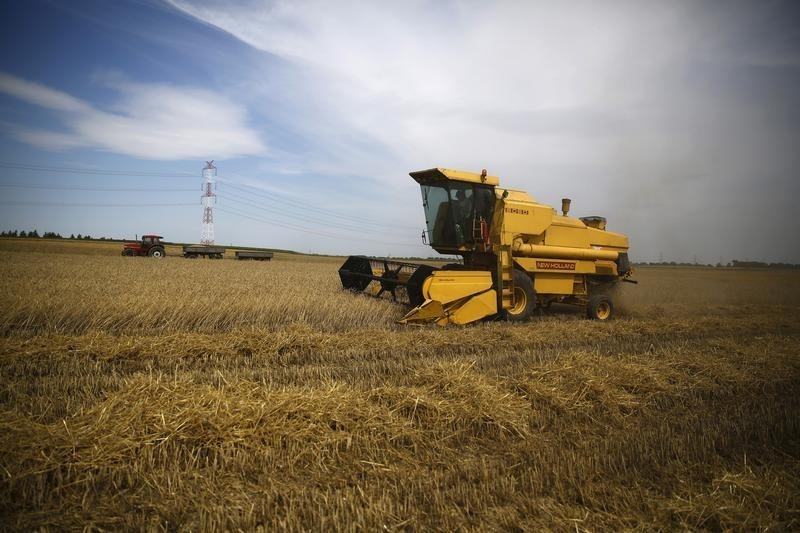By Colin Packham
SYDNEY, Dec 6 (Reuters) - Australia on Tuesday raised its forecast for wheat production during the 2016/17 season by more than 16 percent as near ideal conditions across much of the world's No. 4 exporter push output to record levels and add to ample global supplies.
Wheat output in the 2016/17 season will total 32.64 million tonnes, the Australian Bureau of Agricultural and Resource Economics and Sciences (ABARES) said, up from a forecast in September for 28.08 million tonnes.
With harvesting underway, 2016/17 is shaping up as Australia's biggest wheat crop ever, surpassing the record set in 2011/12 at 29.6 million tonnes.
A large Australian wheat crop - in a global market already flush with supplies following bumper output in the Northern Hemisphere - could further drag on global benchmark prices for the grain and ensure cheap food supplies for Asian buyers.
U.S. wheat prices Wv1 continue to linger near a 10-year low touched the end of August as global supplies this season are set to hit record levels. GRA
Heavy rains across Australia's east coast in recent months will drive much of the record national production, ABARES said.
Australia's east coast had three-years of below average output following sustained dry weather, with the strongest El Nino in nearly 20 years fuelling dry weather in the region and crimping production last season.
The region has seen nearly twice the average rainfall between June 1 and November 30, according to official weather data. New South Wales state will become the largest producer of wheat, ABARES said, with output totalling 10.5 million tonnes.
The all-time high crop comes despite frost limiting production from Western Australia - typically the country's largest producing region. ABARES said Western Australian wheat production will total 9.5 million tonnes.
Higher east coast production is a boost for GrainCorp Ltd GNC.AX , the region's bulk grain handler, which derives income from storing and trading grain.
Meanwhile, ABARES said production of canola will total 3.58 million tonnes, down from its September estimate of 3.63 million tonnes as the heavy east coast rains damaged the earlier maturing canola crop.
